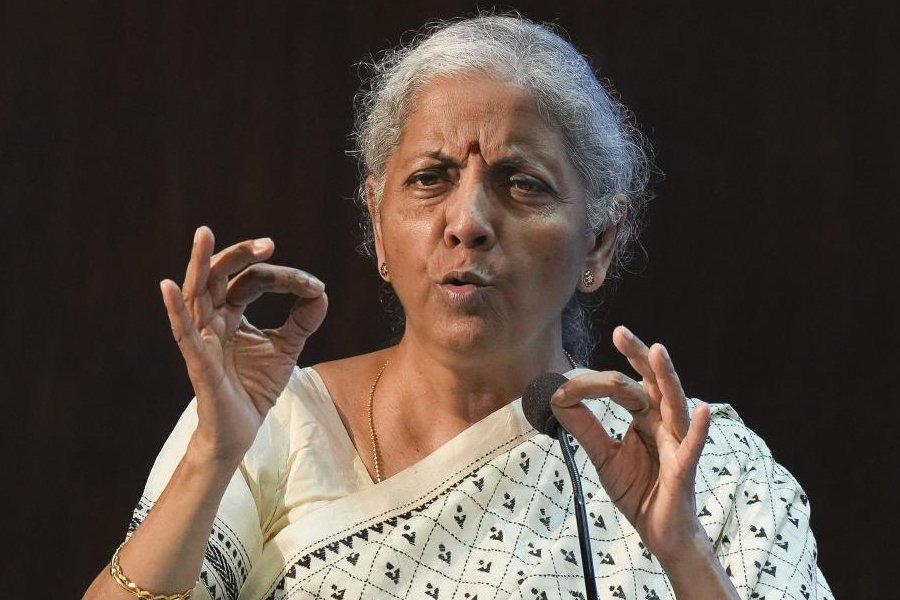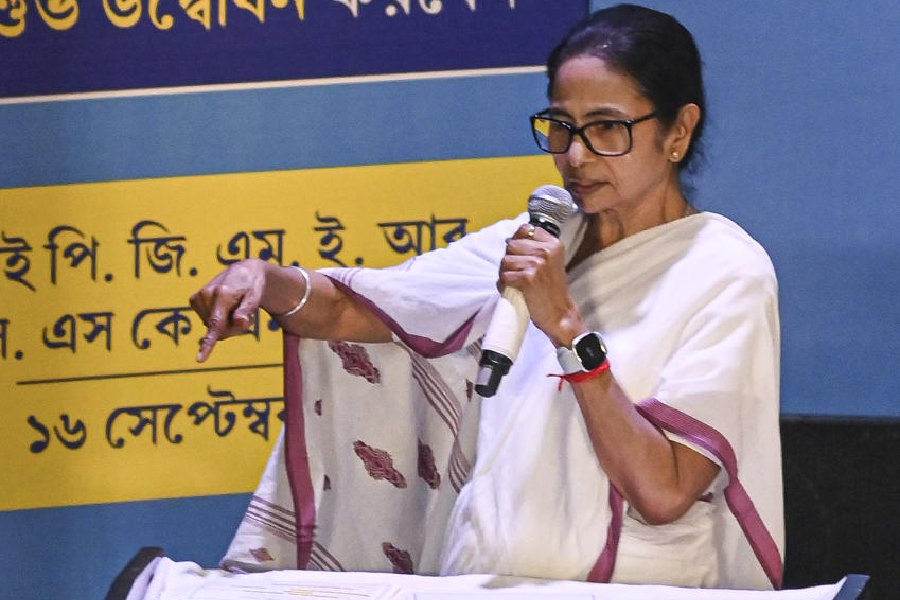India is “not yet” prepared for a single-rate GST, Union finance minister Nirmala Sitharaman said on Thursday, noting that the September 22 rollout of the revised slabs was timed to coincide with Bengal’s Durga Puja.
“When a review of GST was undertaken, one of the needs identified was that they (GST Council members) didn't want four rates. However, the question of whether they were ready to get into a one rate situation as yet was answered with not yet. Maybe sometime in future,” she said at an event in Kolkata.
Sitharaman called the reforms part of “new generation GST reforms,” aimed at making the system simpler and fairer for the poor and middle class.
She recalled that Prime Minister Narendra Modi had asked her eight months ago to “do something about GST” to strengthen what she called one of India’s biggest achievements, a single national market that subsumes central and state taxes while removing barriers like tolls and borders.
“The New Generation GST is not only about reducing rates, but also about simplifying compliance processes and providing clarity for businesses,” Sitharaman said.
The new GST rates will take effect on September 22; a date Sitharaman said was set with Durga Puja in Bengal in mind.
“The determination of September 22 as the implementation date for Next Gen GST was largely influenced by Puja. The Shubh Mangal Diwas when the revamped GST comes into effect coincides with the first day of Navratri, the day after Mahalaya. There is, therefore, a strong influence of Bengal in this decision-making,” she said.
“Durga Puja is Bengal's biggest festival, and people in the state make major purchases during this period. Keeping this in mind, we have chosen this date for the new GST rates to come into effect. This will allow people to benefit from the reduced tax burden during the festive season,” she added.
“Several industries in Bengal, especially in the handicraft and small-scale sectors, will see a reduction in tax rates. The new framework will help local industries,” Sitharaman said.
Products like Nakshi Kantha (embroidered clothes), Malda’s mangoes, Darjeeling tea, jute bags, hosiery, and ready-made garments will directly benefit, the finance minister said.
“Bengal is known for its rich craftsmanship and agricultural products, and with the new tax rates, we expect increased sales during the festive season.”











